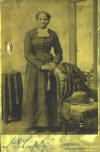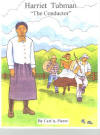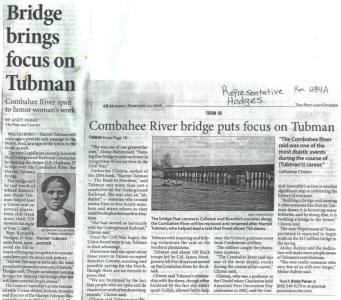| HARRIET TUBMAN.COM | » Home | » Freedom Tour | » Memoriam | » Photo Gallery | » Contact Us |
Bridge brings focus on TubmanCombahee River span to honor woman's workWALTERBORO - Harriet Tubman will once again provide safe passage to the North. And, as a sign of the times, to the South as well. The state Legislature recently honored the Underground Railroad conductor by naming the future U.S. Highway 17 bridge over the Combahee River the Harriet Tubman Bridge. The bridge will be just south of where historians think Tubman helped lead a Union raid on several plantations that freed more than 750 slaves on the night of June 2, 1863. Rep. Kenneth Hodges, D-Bennetts Point, sponsored the bill in hopes of bringing recognition to a prominent hero and the area's rich history. "Harriet Tubman is certainly the most prominent person to come out of that era," Hodges said. "People are always naming bridges, but naming that bridge after her will have national implications." The General Assembly's action resonated with Vivian Abdur-Rahim, founder and director of the Harriet Tubman Historical Society in Wilmington, Del. The advocacy group is pushing for a national day of celebration to honor Tubman. "She was one of our greatest heroes," Abdur-Rahim said. "Naming that bridge is quite an honor in recognition of her services in the Civil War." Catherine Clinton, author of the 2004 book, "Harriet Tubman - The Road to Freedom," said Tubman was more than just a conductor on the Underground Railroad. She was also an "abductor" - someone who crossed enemy lines to free family members and many others so they could be shepherded north to freedom. "She had served so heroically with the Underground Railroad," Clinton said. Once the Civil War began, the Union found ways to use Tubman to their advantage. Historians said she spent about three years in Union-occupied Beaufort County, scouting and possibly spying for the North, though there are no records to prove that. "We are burdened by the fact that people who are spies and do clandestine work often do not keep records," Clinton said. Clinton said Tubman was illiterate but had a steel-trap memory that aided her as a spy. A July 1863 article in The Commonwealth, a Boston-based abolitionist newspaper, credits Tubman with inspiring and helping orchestrate the raid on the Southern plantations. Tubman and about 150 black troops led by Col. James Montgomery left Port Royal and moved up the Combahee River for the attack. Clinton said Tubman's relationship with the slaves, though often hindered by the fact she didn't speak Gullah, allowed her to help steer the Union's gunboats away from Confederate artillery. The soldiers caught the plantations unaware. "The Combahee River raid was one of the most drastic events during the course of her career," Clinton said. Clinton, who was a professor at the Citadel when Charleston held America's First Decoration Day celebration in 2002, said the General Assembly's action is another significant step at celebrating the history of everyone. "Building a bridge and naming it after someone like Harriet Tubman shows it is honoring many histories, and by doing that, it is building a bridge to the future," Clinton said. The state Department of Transportation is expected to begin work on the $13 million bridge in the spring. Abdur-Rahim said the dedication will make more people aware of Tubman's contributions. "She was really someone who very few of
us will ever forget," Abdur-Rahim said. |
 |
website by PWTS MultiMedia |



